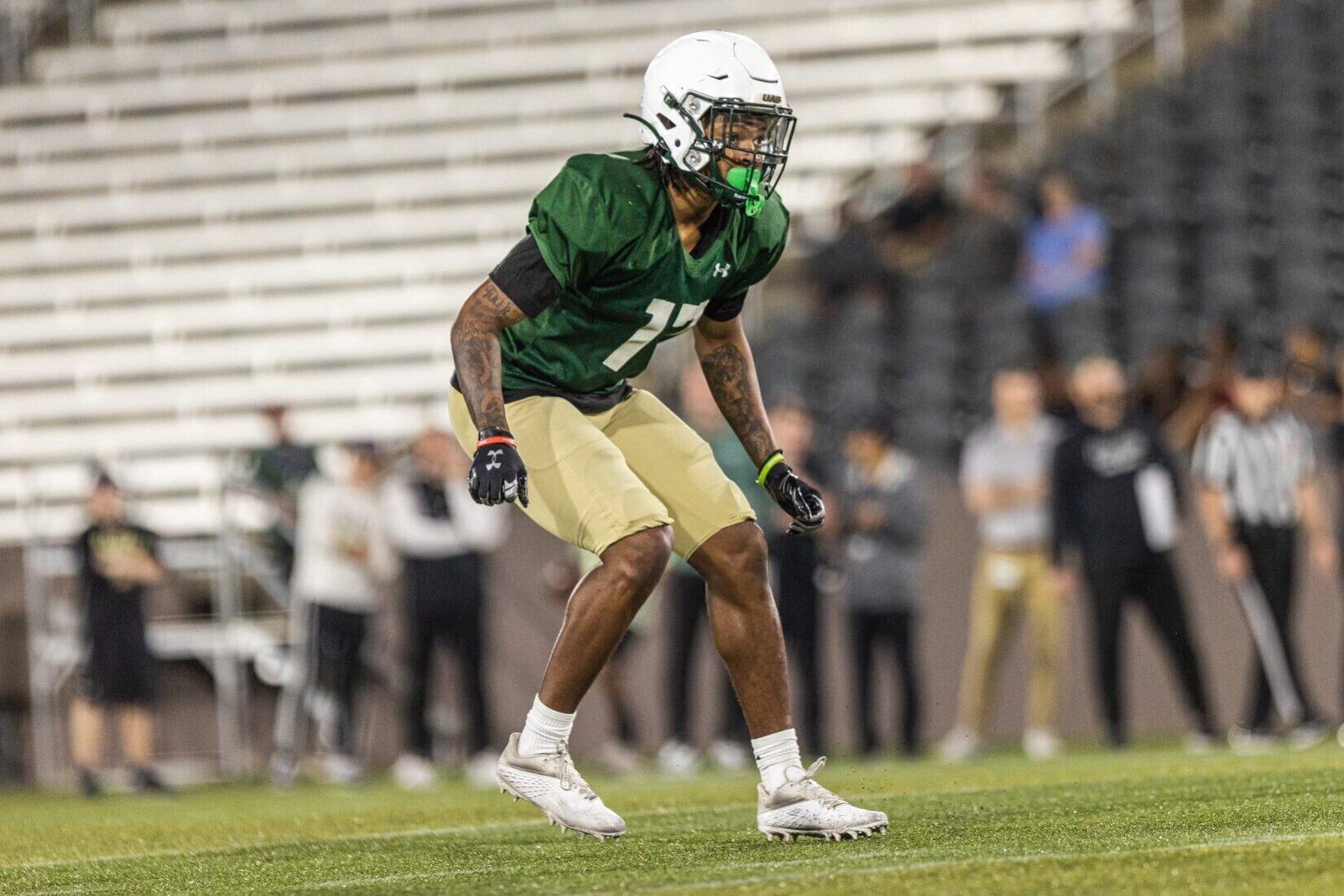BIRMINGHAM — Carl Fauntroy's performance in the UAB football spring game can be described as him doing what he's accustomed to doing on the football field. Or, you might say he was doing what he hasn't been able to do on the football field for nearly two entire football seasons.
Both are accurate.
"That felt like a movie out there," Fauntroy said. "All I ever wanted was to be able to complete at a high level. That's what I got the opportunity to do. It's kind of like second nature. That's what I do."
For those who aren't aware, Fauntroy, a 6-foot-1, 180-pound redshirt freshman safety from Spanish Fort High in Mobile, had two interceptions during the spring game. On the first, he baited the throw before stepping in front of a receiver, grabbing the interception and racing 35 yards for a touchdown. Six plays later, he played centerfield, waited for a throw to come and leaped above the crowd to grab the football.
Defense was ball hawkin’ at the Spring Game.
— UAB Football (@UAB_FB) April 7, 2023
AD Diamond and Carl Fauntroy Jr. each had 2 INTs #WinAsOne pic.twitter.com/ydRAr9ih1d
That's the type of thing that former UAB coaches Bill Clark and Bryant Vincent expected from Fauntroy when they coaxed a commitment from him before his senior season began. In the third game of his senior season, his football life changed. Fauntroy jumped while attempting to secure an interception and was hit on the side of his knee after landing. He suffered a torn ACL on the play, and not only was his high school football career done, but he also missed his senior season in basketball.
It was a difficult time.
"My first thought was to see if the UAB staff would keep me and keep trust in me and my skills," Fauntroy said. "They really did. They kept me tight and held on with me the whole way."
He arrived at UAB in the summer of 2021 and was presented with a patient plan to get back on the field.
"They told me they wanted to keep it slow pace to make sure I was fully 100 percent before I got back out there," Fauntroy said.
When fall camp opened, Fauntroy spent most of his time with UAB Director of Sports Performance Lyle Henley. While the team practiced, he was in the weight room or on the sidelines doing rehab and conditioning work.
"It was very tough watching other people play," Fauntroy said. "It was just a mentality thing. I just had to stay with it. It feels like it makes the year much longer. It makes you feel like you're training forever and ever, your whole life."
Yet, he persevered. Toward the end of the season, he was cleared to return to practice. He worked with the scout team in a limited role and got comfortable with being back on the field.
Current UAB defensive coordinator Sione Ta'ufo'ou didn't see the work that Fauntroy put in to get back on the field, but he sees the final result.
"It's phenomenal for anybody," Ta'ufo'ou said. "Adversity is part of life, and (it) builds character. It reveals who you are. When these kids take adversity on, and they find their time, it's phenomenal just to watch and be a part of the process."
UAB head coach Trent Dilfer and the staff intentionally eased Fauntroy back into the mix.
"I think our coaches have done a really good job of understanding where players are at in their development, and Carl is a great example of that," Dilfer said. "Confidence, coming off an injury, is always a hard thing. Working yourself back, getting your instincts back. He's a guy. You look at his high school tape. He looks like a kid who is going to a Power 5 because of his instincts, his length, his speed. He had to grow back into that."
Fauntroy began spring practice working with what Dilfer and the staff call the developmental players. He did that to get more reps and become comfortable on the field again. Fauntroy said he welcomed that approach.
"It helped me get my eyes and feet ready," Fauntroy said. "I helped me get under control and take the game (as it comes). It was great preparation to be with the older players."
That's precisely what Dilfer wanted him to get out of the process, and it showed during the spring game.
"You saw when you handle practice a certain way, and the kid buys into that," Dilfer said. "It's not an ego thing. He says I know I need to get better at this. I need to work on things. He doesn't feel sorry for himself. He's gone to work. Now, you start seeing him get stronger. It's really about 7 to 10 days ago where I was meeting with the defensive secondary staff, and they were like, 'Yeah, you're starting to see him move the same, starting to react the same.'"
Don't miss out! Subscribe to our newsletter and get our top stories every weekday morning.










